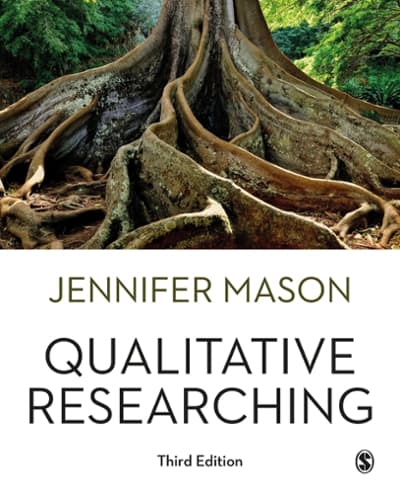Question
Rose resided in the nursing facility for almost two years. She and her husband John had been married for 52 years and had a very
Rose resided in the nursing facility for almost two years. She and her husband John had been married for 52 years and had a very close relationship. They had no children. John would visit Rose twice a day, at lunch and again at dinnertime to assist her with her meals and share private time together. He could no longer drive and took a cab to the nursing facility. He knew many of the residents and would frequently be seen telling them a joke or pushing them in their wheelchairs. Rose was confused at times and always seemed very peaceful and relaxed when John came to visit.
Over the course of a few months, Rose's condition began to deteriorate. She declined food and fluids and died peacefully with John present. John had a memorial service for Rose, but few friends came. John had stopped visiting his friends when Rose was admitted to the nursing facility, and he became so busy with his twice-daily visits. John cried continuously for three days after the memorial service. When he talked about Rose, he spoke of her as if she were still alive. On most days, he could not decide what to eat or what he was supposed to be doing.
Two months after the death of Rose, John was only crying sporadically. His appetite was not good and he had lost some weight. He spent a good deal of his time at home looking at pictures of himself and Rose when they were younger. Once a week, he would visit the nursing facility where Rose died and converse with the other residents and nursing facility staff. Five days a week he would go to the cemetery to visit Rose's grave. The neighbors were concerned about John. When they offered to take him out to eat, he became angry, tearful, and declined their invitation.
Six months after the memorial service, John began going to the store and church, but he had very little interest in these activities. He had always enjoyed walking around the nursing facility grounds, but he no longer enjoyed walking. He would visit the cemetery once a week. He would forget where he put things in the house. He allowed neighbors to visit and spent most of the time reminiscing about his life with Rose, her illness and her death. He had difficulty sleeping and would spend many night wandering around the house.
Ten months after Rose died, John began feeling more energetic. He would still cry when something profound reminded him of Rose, but he did not cry very often. He began eating regular meals and going out to dinner with the neighbors twice a week. He also started playing shuffleboard with his homeowners club and contacted a few friends he hadn't seen in years. One year after Rose died, John visited the nursing facility to plant a tree in Rose's name in the nursing faculty courtyard. He also visited her grave that day. That afternoon, he played shuffleboard and went to dinner with a friend he hadn't seen in two years.
After reading the case study on John and Rose, please answer throughly the following question
- Discuss John's grief as it compares to what you have read about normal grief and bereavement. How does this compare to your own experiences (with patients, family members, or friends).
Step by Step Solution
There are 3 Steps involved in it
Step: 1

Get Instant Access to Expert-Tailored Solutions
See step-by-step solutions with expert insights and AI powered tools for academic success
Step: 2

Step: 3

Ace Your Homework with AI
Get the answers you need in no time with our AI-driven, step-by-step assistance
Get Started


